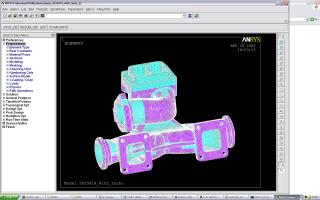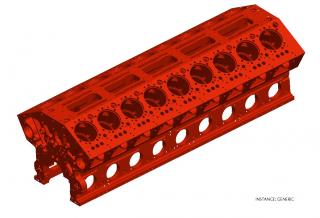-
Posts
1767 -
Joined
-
Last visited
Content Type
Profiles
Forums
Gallery
Everything posted by OD404
-
£1400 f/c on a Mazda RX7 tuned to roughly 350-400bhp all mods declared and covered like for like and an agree'd value of £8000 on the car. I was 24 with 2yrs no claims when I took out the insurance. I'm with Sky Insurance and the underwriters are Ensign.
-
It fluctuates yes, but this is more than a fluctuation...
-
Well no, it is up to us to cut back where we can because there will come a day when oil supply gets tight. Better to start now than later, but the big issue I have with the tax is that it is linked to everything else. Fuel prices go up, and so does everyother basic need that we have (food for example). It's pretty obvious that people are going to start stuggling with all these price increases to basic comodities, but the government seem unwilling to help the country out. By lowering fuel duty, not only will fuel be cheaper, but it will control the cost of food as delivery will be cheaper. That's my whole issue. It's been proven time and time again that cost of fuel is in no way linked to the population's use of it. The vast majority of journeys are those of necessity through commuting (not everyone who works in London can afford to live there comfortably) so people are unable to cut back. And the car is still more economical in terms of pounds per mile per hour than any public transport, which is why you won't ever see a mass exodus to trains and buses.
-
If I remember correctly it's 400 years based on current useage of current stocks that we have access to. There is a lot more we haven't accessed yet and no-one seems to want to put a figure to how much that actually is.
-
The last insider report I saw put oil reserves at lasting around 400yrs. The amount of oil left is NOT the issue and to the industry it never has been. What is the issue here is the cost of getting the oil out of the ground. For example in the Canadian oil sands it actually costs more to get the oil out than they can sell it for. Half the reports that get distributed round the industry rarely see the public light of day, so it doesn't suprise me that people don't have the right end of the stick. PS. My department is budgeted to burn $15m of tax-free diesel this year alone
-
I don't think creep has anything to do with it as creep is a temperature based failure mode where a part is under high static loads for long periods of time. The dark patches are synonymous with fatigue failures, another confirmation is a beaching effect on the fracture face where you can see rings relating to the way the crack propagated though the metal. I've seen these failures on brakes running standard Magura backings so I wouldn't be confident saying that cnc backings caused this. Infact given how bad the casting detail of these parts is and the number of potential stress risers in the failure region, I'm more tempted to say that it would have broken no matter what pads you had.
-
My thoughts exactly. The whole post made no sense to me whatsoever. The broken prongs do look a little like the result of fatigue to me as there seems to be some darker areas on the fracture face which would indicate the presence of a crack prior to the final failure (though could be just shadow).
-
Not necessarily. I'm an engineer, not a graphic designer, but I still design engines for a living. Or does that not count? Design is not a term that's exclusive to graphic designers. However there is truth in your words as I don't class people who operate cnc machines as designers, or engineers for that fact. They are operators/technicians. I won't rant on this but it does get to me when every person that can operate a screwdriver (such as the guy that put up my parents satellite dish) calls themselves an engineer, it really belittles the work that qualified engineers do to the point where unless you are chartered (thank god I will be next year) you are classed as being semi-skilled. Utter joke. Anyway, on topic. I work as a structural analyst for an industrial diesel engine manufacturer. My job involves using structural and thermal analysis software to optimise the design of our engines. Been working there about 1.5yrs now.
-
Glad to hear it I've seen too many models that just neglect welding completely. It's better to model an ideal weld (geometry, material etc) than to assume you don't need it in the model. At least in that situation you can gain an understanding of how a welded area will be loaded and how critical the weld quality will be on overall part life. I've done some work at modeling bad welding using crack tip elements with some success, but its use only really works when you have example welds to hand.
-
Out of interest, how is the FE model accounting for the welding?
-
I work for Cummins. Actually most of the engine go into mining applications, though we do do versions meant for power generation and marine apps. I'm more on the analysis side than the CAD design side (I'm the one that validates the new designs) so ProE is only really used to simplify models and build the necessary assemblies for whatever analysis I'm running. My true weapons of choice are Ansys Workbench, Ansys Classic, and FE Safe. PC isn't too bad, but it does lack punch when dealing with complete engine schemes (dual 3ghz opterons, 8gb ram and 512mb Nvidia workstation graphics card) and for larger analyses we have a dedicated FEA server (16 processors, 128gb ram) in the building.
-
When I get home from work I'll post some bits up from what I'm working on at the moment. Not bike related, but those into engineering design and analysis might find them interesting EDIT: Here we go The mesh for a cyclic thermal analysis I'm currently building. The part in question is a piece of the exhaust manifold from a 50litre v16 diesel engine which puts out roughly 2000bhp. This kind of thing is a day-in, day-out occurence for me now. Some old work I was involved with. Had to remodel the block for our 78litre engine after changes were made to the casting molds by our supplier. I can't take credit for the whole model, but sometimes it's easier to start from scratch than work with (in this case) a poor initial model.
-
My sentiments exactly. I used to play around designing different bits and bobs, never with the intention of making them though, I just wanted to have a play. In hindsight, this playing around has paid off as it made me quite proficient with the CAD packages I used which has helped me at work.
-
They may all look different, but the basics on how to create stuff is pretty much the same between all of them. It is however, pretty difficult to get free versions of CAD software and the ones that are free are pretty clunky to use meaning you'll spend more time learning the user interface rather than learning the modelling techniques. First thing to do is find out what program your college uses. No point in learning something else imo. When you know that, drop me a PM.
-
I hate the fact their existence means we see fifty of these threads every month...
-
The other reply that I have used in the past is to admit that you aren't aware of any but state that you hope that your collegues would point out any so that you can improve on them. I've never had any bad experiences using that.
-
What I've tended to do is find a good quality but present a negative side to it. That way you are still shown in a good light, but you are seen to be in recognition that it can have an adverse effect. For example, in the interview for my current job (Structural analyst for an engine manufacturer) I was asked the same question. My response was "my attention to detail". Generally this is seen as a good quality to have, but I presented it in the light of being a hinderance to getting work done on time, obviously being careful not to suggest that I can't deliver results on time, but I think you get the idea I'm putting across. Good luck with it mate, the nerves just mean you want this more than anything else you've gone for in the past
-
Nail on head. All this talk of corrosion is frankly wrong! Water lacks the lubricity of mineral oil and can contain a greater number of impurities which will accelerate the wear between the o-rings and cylinder walls. After time this will lead to leaking. Luckily it will take many years (3-5 from people's experiences) for this to occur.
-
Not necessarily true. I belive that while it is very easy to replace the o-rings in the lever, the seals in the slave cylinders cannot be replaced so easily (correct me if I'm wrong). When my brake's seals finally went I replaced the o-rings in the lever, but I was still leaking water from the slaves. That said, this only happened after three years so I am happy with that kind of life from my brakes.
-
That vid is awesome Bren. I'm off to Banff in Canada this sat. Can't wait as it will be my first time on a mountain. Had a few lessons at X-Scape in Milton Keynes, but even as a complete novice, it feels very limited in there. Bring on the mountains
-
In my experience yes it will make a lot of difference. In my case when I come to renew my policy on the rx7 I will save over £500 from last year with being 25 and having the extra years no claims. I would do as Ads says and put some details into one of the many comparisson sites. And if you can wait the month, do it. It certainly shouldn't be more expensive.
-
My my some great replies here Right, time to dispel a myth... Myth number one: "when playing with diesel I'm likely to set myself on fire" Well aside from the notion of anyone playing with naked flames and flamable liquid being somewhat stupid you will be pleased to know that even if you threw a match into a bucket of the stuff it won't ignite. The reason for this is evaporation. Petrol evaporates at room temperature and pressure and it is this vapour that actually ignites. Diesel evapourates at far higher temperatures meaning it will not ignite. As for bleeding brakes with it, I wouldn't have a clue as I've not tried it myself, but a couple of points I would make are: One, diesel does have a good lubricity which will prolong the life of the magura seals. Two, it is less viscous than magura fluid, giving a lighter feel. Three, it is slightly corrosive to engines (I use it to clean cylinder bores of carbon build up). However in reference to it rotting engine seals I wouldn't have thought it to be that bad. Scopse, weren't you running some form of biodiesel in your Astravan? If so then that will explain the issues you are having as biodiesel is highly corrosive to most natural rubbers and aluminium. Not usually one to do this, but this just made me laugh. Hard! Hydraulic (the correct spelling) is used to define a system that is operated by a fluid, any fluid, be it water, magura blood, or some of the bodily fluids that people on here like to joke about. Hence a hydraulic brake can technically be run on any fluid you can get hold of. I'd love to see the look on a mechanics face when you ask him for hydraulic fluid... Water is less dense than magura blood (they are both hydraulic fluids) which gives a lighter feel to the lever. This is something that most people on here would regard as a good thing. As for water being bad for seals. In this one instance you are correct. Due to the lower lubricity of water, it will not keep the seals properly lubricated and they will wear out quicker than with an oil based fluid (such as magura blood). What I've found (note this is personal experience) is that while the seals will eventually wear out on water, I managed to get three years of life out of the brake before I had any issues. God knows how many TPA's I broke in that time. It boils down to what you see as being more important; a lighter braking action, or you brake lasting longer. There will always be people arguing both sides of the story.
-
Would help if you'd photographed all of it...
-
RX7's are classed as 2.6's by insurance companies. Because rotaries have twice as many power strokes per crank revolution, they simply double the capacity. Otherwise they would be ridiculously cheap to insure given their performance. Thankfully, they still get classed as 1.3's by the DVLA which mean it's the cheapest car tax-wise out of everything I have owned. I don't think the point of huge's list was to suggest cars to get as a first car, more of a case of highlighting that the statement regarding getting a car which is a 1.4 or above, is a bit silly. Which was kinda what I was getting at above, but more subtly. Also consider that getting an older 1.4 will actually give you less power than a newer 1.2. For example, my ex's Polo is a 1.4 8v that produces 60bhp and my first car (Previous model Corsa) had a lovely 1.2 with 75bhp. Isn't progress wonderful?





